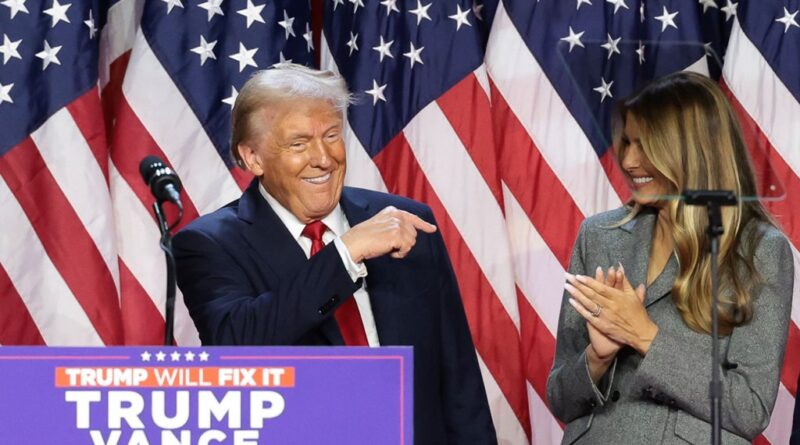Has Trump Abandoned the Music Business?
Does the music business, which is traditionally the media, no longer deal with US consumers? It’s a difficult question to ask – and it’s a difficult time to ask it. But if you compare the results of the presidential election with the politics of artists and directors, it is difficult not to do so.
A common feeling among people I know is to panic at the rate of Donald Trumpvictory – many expected a close race with polling going on all week – and the unsettling feeling that the US is not the country we thought it was. What happened and why will be discussed for years. And there’s an urgent question: Why didn’t most people see this coming?
One reason is that this is still visible amazing – I’m old enough to remember talking about the private parts of a golfer that would be out of place in politics, let alone the Republican party. But part of it is that, intentionally, a lot of people in the media business right now are living very little. I am one of them: I live in Berlin and spend most of my time in the US or near New York, and I read The New York Times and The New Yorker. When it comes to music, none of my favorite artists supported Trump, and one, Bruce Springsteen, campaigned against him. Some of the biggest musicians in the world also supported Kamala Harris – Taylor Swift, Beyoncé, Ariana Grande, Sabrina Carpenter – like many music directors. Many of them must share my surprise.
Are they – are we – so separate from the common people?
A large number of Trump supporters are racists – certainly enough to disturb one. But it’s hard to make a case that Trump supporters are extreme if they take more than half of the vote. By definition, they are common. Worryingly, the Democrats don’t seem to know how to talk to them in a way that solves their problems. Calling them deplorables didn’t work, and making the case that Trump would be a disaster for democracy didn’t work either. (Democracy means that people vote for their leaders – it doesn’t mean they vote for the leaders you want.) The Democrats focus more on what people can do for their country at a time when voters seem to have interest in what their country can do. for them. Ideas are important, but most people seem to focus too much on the low cost of groceries.
For whatever reason, it’s now clear that there are more Trump voters than most people think, including musicians and music executives. They are also new and different than people realized. Most of them have to listen to pop music. But is the music business listening to them? The idea that it is controversial to support Trump, without repeating any of his negative statements, means turning away more than half of America’s patients. That’s not how mass marketing works.
The challenge Trump poses to American democracy is far more important than selling music, of course. And I doubt I’ll get a few emails about how ridiculous it is to suggest that anyone sell music to people who think aliens eat cats. But reaching different types of people through different forms of art is what the music business is all about.
And that’s what politics should do. The music business and politics need to do better to reach a wider audience. That often means connecting with existing players, but it must also mean reaching new ones. Usually, people will not buy what they are selling, whether it is a new album or a new candidate. But it’s important to have those conversations — for those of us who want to help elect a new president in four years and for those of us who want to argue that this one will do a good job.
Increasingly, politics seems static, where ideas are sold, and applauded by those who have already made up their minds. In music, that’s known as the superfan strategy, and it’s very important. But building a persona requires reaching new people to become followers, or supporters, in the first place.
#Trump #Abandoned #Music #Business
